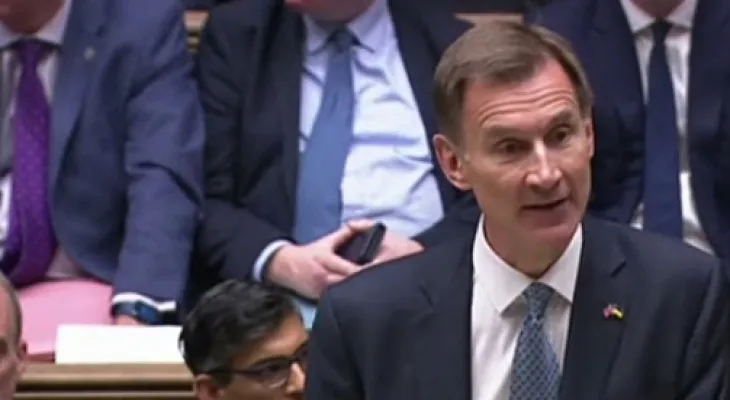Search here
Newspaper
Search here

Arab Canada News
News

Published: November 19, 2022
Britain announced on Thursday that it has adopted an austerity budget based on raising taxes and cutting spending by £55 billion (USD 65 billion), at a time when it confirmed that its economy is now in recession.
In this regard, Treasury Secretary Jeremy Hunt said during his budget presentation to Parliament that tough measures are necessary to achieve financial stability after recent disruptions, stressing that they will alleviate the severity of the slowdown the country is witnessing.
Hunt also launched a new era of austerity after the short disastrous period that former Prime Minister Liz Truss spent in power, following the release of official data showing inflation in Britain reaching its highest level in 41 years above 11 percent.
The Treasury Secretary told Parliament on Thursday that the Office for Budget Responsibility considered "that the United Kingdom, like other countries, is now in recession." Despite the economic slowdown, Hunt and Prime Minister Rishi Sunak emphasize the need for tough steps after the former Prime Minister launched a series of tax cuts that caused panic in financial markets.
The pound also fell by 1 percent against the dollar following the unveiling of the austerity budget in the United Kingdom. It had recorded a record low level against the dollar in late September, after Liz Truss failed to reveal the impact of tax cuts on growth and inflation.
Meanwhile, analyst at Pantheon Macroeconomics Samuel Tombs warned that the new budget risks "exacerbating the ongoing recession." This comes as the Treasury Secretary pointed out that the UK GDP will decline by an additional 1.4 percent in 2023.
The Bank of England, which is raising interest rates to combat high inflation, also warned that the British economy may face a record-long recession until mid-2024.
Despite the gloomy forecasts, Hunt announced tax increases for workers alongside spending cuts on Thursday. However, he pledged to increase spending on the National Health Service amid severe delays in carrying out operations for patients. He added that benefits for the unemployed and retirees will rise to a level close to the inflation rate, while the minimum wage will increase.
Likewise, the Treasury Secretary indicated a tax on oil and gas giants, whose profits have risen due to the repercussions of the Ukraine war, to help finance support for the poorest consumers facing high energy bills. In light of this, energy giants such as BP and Shell will face exceptional profit taxes ranging from 25 to 35 percent, which will be extended until 2028. The government will impose a temporary tax on power generation companies.
The war in Ukraine contributed to pushing global inflation to its highest levels in decades. Prices also rose due to supply constraints fueled by the Covid pandemic. Bank of England Governor Andrew Bailey also reiterated on Wednesday that the British economy has also been affected by the country's exit from the European Union.
Comments